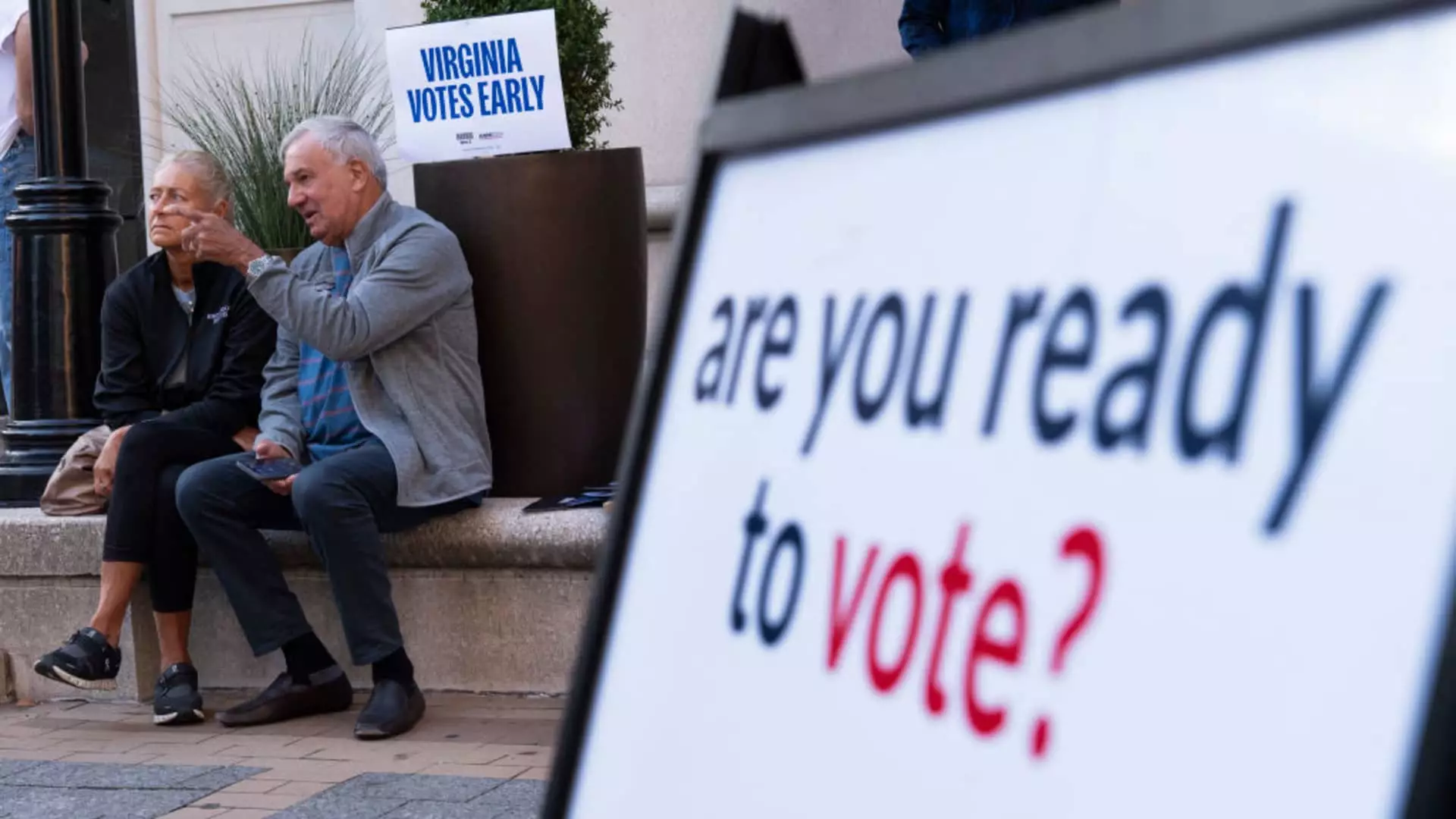As the November elections approach, the decision-making process for Americans extends beyond political preferences at the ballot box. A significant number of individuals are recalibrating their financial plans based on anticipated outcomes, demonstrating how national sentiment can seep into personal finance. A recent survey from the CFP Board revealed that approximately 63% of respondents are postponing major financial commitments, such as vacations, vehicle purchases, and home renovations, until after the electoral results are declared. This pattern raises questions about whether such caution is warranted or if it can lead to missed opportunities.
Delaying financial decisions until after the elections may seem prudent, yet experts argue that this approach could be counterproductive. Individuals should critically assess whether deferring a purchase or investment truly aligns with their financial objectives. Michael Liersch, head of advice and planning at Wells Fargo, emphasizes the importance of self-reflection: “If Candidate A won or Candidate B won, would they really do something different?” The key lies in distinguishing between how political results may impact the broader economy and individual financial health. An accurate evaluation of personal financial strategies should take precedence over uncertain election outcomes.
Understanding the implications of waiting is crucial. Major policy changes do not materialize overnight; consensus among lawmakers is essential for significant shifts. This reality makes the idea of “waiting for results” less compelling. It can be more effective for individuals to revisit their financial roadmap, focusing on their goals and aspirations instead of external factors.
In uncertain times, focusing on what one can control becomes imperative. Certified financial planner Liz Miller notes that when her clients express a desire to postpone purchases, she often redirects them back to their financial plan, shedding light on potential unnecessity in waiting. Many individuals find that their concerns are rooted not in their financial circumstances but in the anxiety stirred by political turbulence. Miller encourages creating varying scenarios—best case, worst case, and middle ground—to assess how much an election outcome might actually influence their financial decisions.
Take Social Security, for instance; a concern noted by 81% of survey respondents, according to Edelman Financial Engines. Many are worried about potential cutbacks in benefits, particularly as the Social Security trust fund is on track to become depleted by 2033, potentially reducing benefits to 79%. While these fears are valid, there are proactive steps individuals can take to buffer against these uncertainties. Financial advisors recommend assessing individual benefits and seeking ways to enhance retirement savings now rather than waiting for policy changes.
Despite an environment rife with unpredictability, actions such as paying down debts, building an emergency fund, and adhering to a well-planned investment strategy can fortify one’s financial position. Stacy Francis, president of Francis Financial, encourages clients to revisit their financial plans now, highlighting the importance of mapping out plans that extend well into the later stages of life. Roth conversions and other tax strategy considerations are crucial discussions to have in anticipation of potential policy changes following the election.
Moreover, the ongoing double-digit gains in the stock market provide a solid reason for evaluating capital gains proactively. Miller, as a chair-elect for the CFP Board, advocates for discussions around capital gains tax strategies amidst fluctuating market conditions. The question then arises: is it trulywise to hold off on financial decisions simply to await the results of an election? Analyzing how delays might not only impact immediate financial situations but also long-term security is a necessary exercise.
Ultimately, adopting a proactive financial mindset is essential during these unpredictable times. A balance must be struck between remaining aware of external political influences and maintaining focus on personal financial goals. Reflecting on personal circumstances, re-evaluating financial plans, and considering the broader economic context without overestimating the impact of political changes can empower individuals to make informed, confident decisions.
As the election draws nearer, using it as a barometer for financial choices can create unwarranted hindrances. The advice from financial experts points toward the fact that shifting focus back onto personal priorities, rather than external uncertainties, may be the best path forward. The future will inevitably hold its surprises, but a well-structured financial plan anchored in personal goals can serve as a guide through any political or economic landscape.

